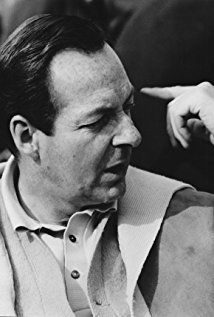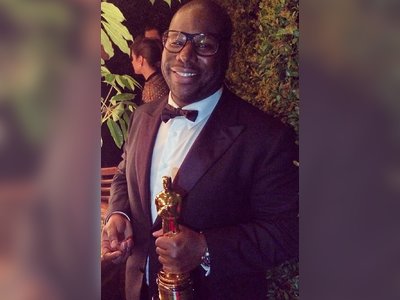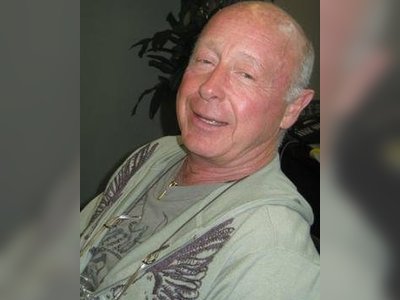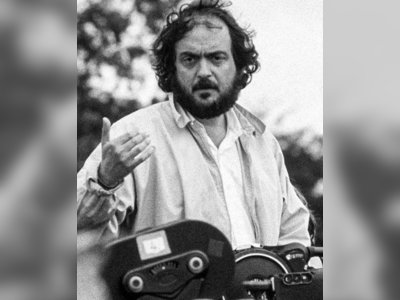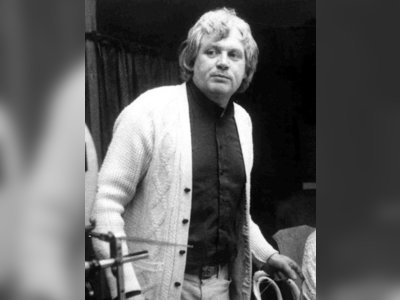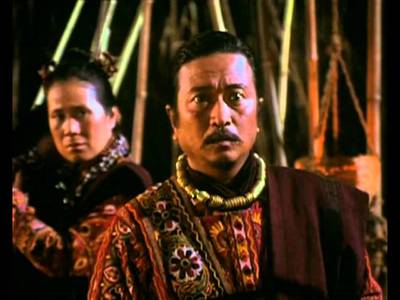British Heritage
Remember, Cherish, Learn.
beta
Guy Hamilton - Accomplished James Bond Film Director
A Jewel in the Crown of British Cinematic Heritage.
Guy Hamilton's indelible mark on British cinematic heritage and the larger world of international cinema reverberates with his exceptional storytelling and innovative directorial techniques. His distinguished career, spanning over four decades, added a dynamic dimension to the British filmmaking scene, enriching it with his pioneering vision. This article explores the life, legacy, and influence of Guy Hamilton, the extraordinary James Bond director, tracing his journey from a young Parisian émigré to one of Britain's most acclaimed film directors.
Guy Hamilton was born Mervyn Ian Guy Hamilton on September 16, 1922, in Paris to English parents. His early life was marked by cultural shifts and global turmoil. With the outbreak of the Second World War, Hamilton found himself among 500 refugees escaping France aboard the MV Saltersgate. His companion on this voyage included the illustrious author W. Somerset Maugham.
Hamilton's film career began modestly in 1938 at Victorine Studios, where he worked as a clapperboard boy. His stint in the film library at Paramount News following his wartime service in the Royal Navy would prove pivotal in shaping his cinematic perspective.
Hamilton's experiences during the war, which included a harrowing month behind enemy lines in occupied Brittany, further deepened his understanding of human narratives, laying the foundation for his storytelling prowess. The Royal Navy recognised his gallantry with a Distinguished Service Cross, a testament to his grit and resilience.
Following the war, Hamilton's passion for film production led him to work as a second unit assistant on a Trevor Heid picture. He gradually climbed the ranks, learning the ropes of the industry under the aegis of Alex Korda. This period was marked by profound learning and exposure, with Hamilton often remarking that his experiences with less proficient directors were the most instructive, teaching him what to avoid in his directorial pursuits.
Hamilton's formative years were significantly influenced by his association with the acclaimed director Carol Reed. The time he spent assisting Reed on notable films like "They Made Me a Fugitive" (1947) and "The Fallen Idol" (1949) significantly shaped Hamilton's directorial style.
Hamilton also worked with other distinguished directors including Jean Negulesco, Sidney Gilliat, John Huston, and Ralph Richardson on productions like "Britannia Mews" (1949), "The Third Man" (1949), "The African Queen" (1951), and "Home at Seven" (1952).
Hamilton's directorial debut arrived with "The Ringer" (1952), thanks to Korda's faith in his talent. This B-movie, followed by "The Intruder" (1953), and "An Inspector Calls" (1954), paved the way for his breakthrough film, "The Colditz Story" (1955), which he co-wrote and directed. The prisoner-of-war narrative became his most profitable film of the decade.
Throughout the 1950s, Hamilton continued to experiment with different genres, from musicals with "Charley Moon" (1956) to adventure films with "Manuela" (1957). His knack for handling intricate action sequences first surfaced in the Italian war comedy "The Best of Enemies" (1961).
However, it was Hamilton's association with the James Bond franchise that cemented his place in British cinematic history. Beginning with "Goldfinger" in 1964, Hamilton brought a unique blend of action, innuendo, and black humour to the iconic spy thriller series. He went on to direct three more Bond films: "Diamonds Are Forever" (1971), "Live and Let Die" (1973), and "The Man with the Golden Gun" (1974).
Hamilton's influence on the Bond series was pivotal. In particular, his mentoring of Roger Moore, guiding the actor to craft a distinct portrayal of Bond, underscored his significant impact on the franchise. Despite the franchise's later reliance on special effects, Hamilton remained a staunch advocate for practical stunts and grounded storytelling.
Beyond the Bond universe, Hamilton directed a variety of films, including "Funeral in Berlin" (1966), "Battle of Britain" (1969), "Force 10 from Navarone" (1978), and Agatha Christie adaptations such as "The Mirror Crack'd" (1980) and "Evil Under the Sun" (1982).
Hamilton was initially slated to direct "Superman: The Movie" (1978) and was even considered for "Batman" (1989), although he declined the latter and tax complications kept him from helming the former. Regardless, his influence extended beyond the films he directed.
Guy Hamilton passed away on April 20, 2016, at the age of 93. Yet, his legacy continues to resonate within the echelons of British cinema and beyond. He was a filmmaker who endeavoured to do the best with the material he was given, often elevating it through his unique directorial lens.
Married twice, first to Naomi Chance in 1953 and then to actress Kerima in 1964, Hamilton's personal life was as filled with adventure and passion as his films. He spent his final years in a villa in Andratx on the Mediterranean island of Mallorca, a fittingly picturesque setting for a man who painted such vivid images on the silver screen.
Hamilton's contributions to British heritage go beyond his extensive filmography. He was a champion of practical filmmaking, a mentor to many, and a fervent believer in the power of storytelling. His contributions to the James Bond franchise, in particular, have left an indelible mark on British cinema. His vision, tenacity, and passion for film will be remembered as integral components of British cinematic history.
The Genesis of a Cinematic Visionary
Guy Hamilton was born Mervyn Ian Guy Hamilton on September 16, 1922, in Paris to English parents. His early life was marked by cultural shifts and global turmoil. With the outbreak of the Second World War, Hamilton found himself among 500 refugees escaping France aboard the MV Saltersgate. His companion on this voyage included the illustrious author W. Somerset Maugham.
Hamilton's film career began modestly in 1938 at Victorine Studios, where he worked as a clapperboard boy. His stint in the film library at Paramount News following his wartime service in the Royal Navy would prove pivotal in shaping his cinematic perspective.
Hamilton's experiences during the war, which included a harrowing month behind enemy lines in occupied Brittany, further deepened his understanding of human narratives, laying the foundation for his storytelling prowess. The Royal Navy recognised his gallantry with a Distinguished Service Cross, a testament to his grit and resilience.
Ascending the Ranks: The Assistant Director Years
Following the war, Hamilton's passion for film production led him to work as a second unit assistant on a Trevor Heid picture. He gradually climbed the ranks, learning the ropes of the industry under the aegis of Alex Korda. This period was marked by profound learning and exposure, with Hamilton often remarking that his experiences with less proficient directors were the most instructive, teaching him what to avoid in his directorial pursuits.
Hamilton's formative years were significantly influenced by his association with the acclaimed director Carol Reed. The time he spent assisting Reed on notable films like "They Made Me a Fugitive" (1947) and "The Fallen Idol" (1949) significantly shaped Hamilton's directorial style.
Hamilton also worked with other distinguished directors including Jean Negulesco, Sidney Gilliat, John Huston, and Ralph Richardson on productions like "Britannia Mews" (1949), "The Third Man" (1949), "The African Queen" (1951), and "Home at Seven" (1952).
A Director Emerges: The Journey Begins
Hamilton's directorial debut arrived with "The Ringer" (1952), thanks to Korda's faith in his talent. This B-movie, followed by "The Intruder" (1953), and "An Inspector Calls" (1954), paved the way for his breakthrough film, "The Colditz Story" (1955), which he co-wrote and directed. The prisoner-of-war narrative became his most profitable film of the decade.
Throughout the 1950s, Hamilton continued to experiment with different genres, from musicals with "Charley Moon" (1956) to adventure films with "Manuela" (1957). His knack for handling intricate action sequences first surfaced in the Italian war comedy "The Best of Enemies" (1961).
The James Bond Legacy
However, it was Hamilton's association with the James Bond franchise that cemented his place in British cinematic history. Beginning with "Goldfinger" in 1964, Hamilton brought a unique blend of action, innuendo, and black humour to the iconic spy thriller series. He went on to direct three more Bond films: "Diamonds Are Forever" (1971), "Live and Let Die" (1973), and "The Man with the Golden Gun" (1974).
Hamilton's influence on the Bond series was pivotal. In particular, his mentoring of Roger Moore, guiding the actor to craft a distinct portrayal of Bond, underscored his significant impact on the franchise. Despite the franchise's later reliance on special effects, Hamilton remained a staunch advocate for practical stunts and grounded storytelling.
Beyond the Bond universe, Hamilton directed a variety of films, including "Funeral in Berlin" (1966), "Battle of Britain" (1969), "Force 10 from Navarone" (1978), and Agatha Christie adaptations such as "The Mirror Crack'd" (1980) and "Evil Under the Sun" (1982).
Hamilton was initially slated to direct "Superman: The Movie" (1978) and was even considered for "Batman" (1989), although he declined the latter and tax complications kept him from helming the former. Regardless, his influence extended beyond the films he directed.
A Farewell to a Stalwart of British Cinema
Guy Hamilton passed away on April 20, 2016, at the age of 93. Yet, his legacy continues to resonate within the echelons of British cinema and beyond. He was a filmmaker who endeavoured to do the best with the material he was given, often elevating it through his unique directorial lens.
Married twice, first to Naomi Chance in 1953 and then to actress Kerima in 1964, Hamilton's personal life was as filled with adventure and passion as his films. He spent his final years in a villa in Andratx on the Mediterranean island of Mallorca, a fittingly picturesque setting for a man who painted such vivid images on the silver screen.
Hamilton's contributions to British heritage go beyond his extensive filmography. He was a champion of practical filmmaking, a mentor to many, and a fervent believer in the power of storytelling. His contributions to the James Bond franchise, in particular, have left an indelible mark on British cinema. His vision, tenacity, and passion for film will be remembered as integral components of British cinematic history.
- Guy Hamiltonen.wikipedia.org
